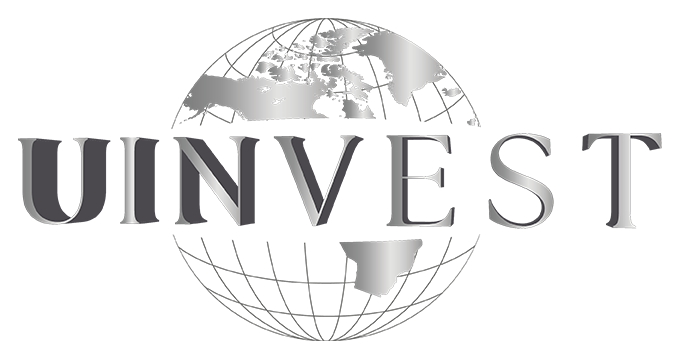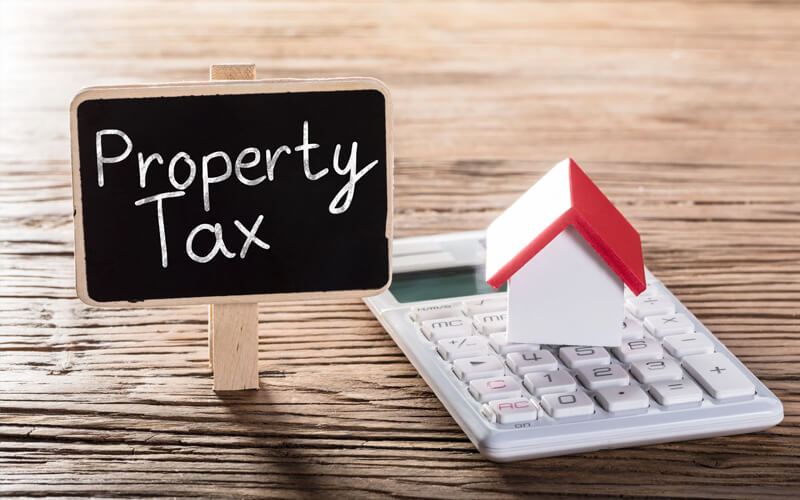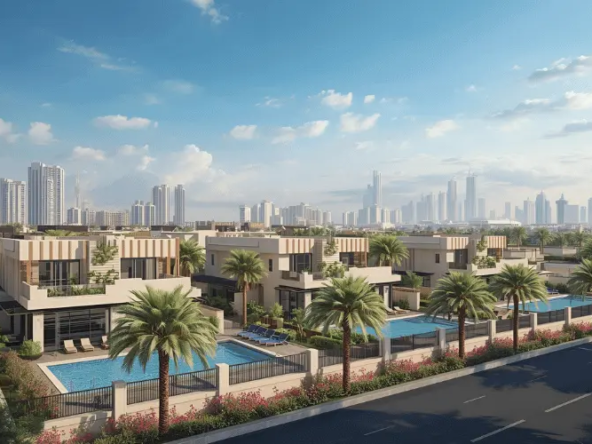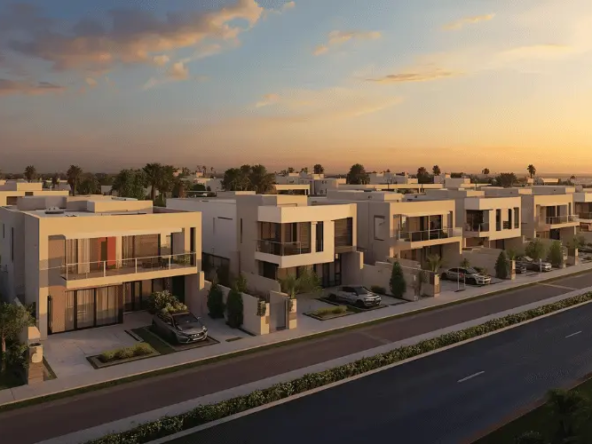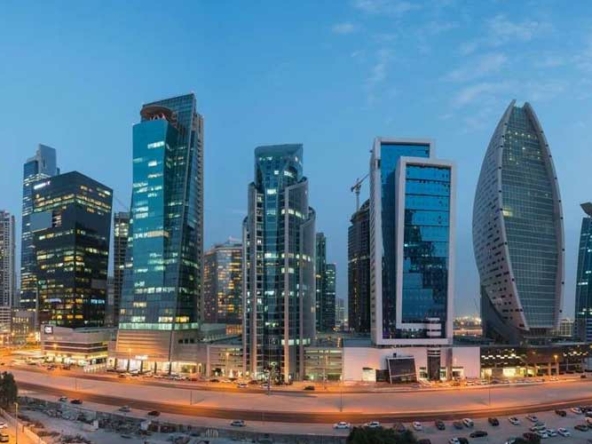Dubai’s skyline dazzles with opportunity. Its real estate market thrives. Yet, understanding property tax in Dubai is crucial for investors.
No annual property tax exists. This sets Dubai apart globally. Fees and charges still apply, though.
Uinvest Group, a trusted agency with properties in five countries, guides you. They simplify finding your dream Dubai home.
Understanding Dubai’s Property Tax Framework
Dubai’s tax system is highly investor-friendly. No Property Tax in Dubai applies, and there’s no personal income tax either, which attracts global buyers looking to invest.
Residential properties face no annual levies, while commercial properties may incur minor fees. Overall, the system prioritizes simplicity and transparency. This makes Dubai Property Fees predictable for investors.
Instead of traditional taxes, service charges are used to maintain community spaces. These charges vary depending on property type and location, ensuring fair contributions from all owners.
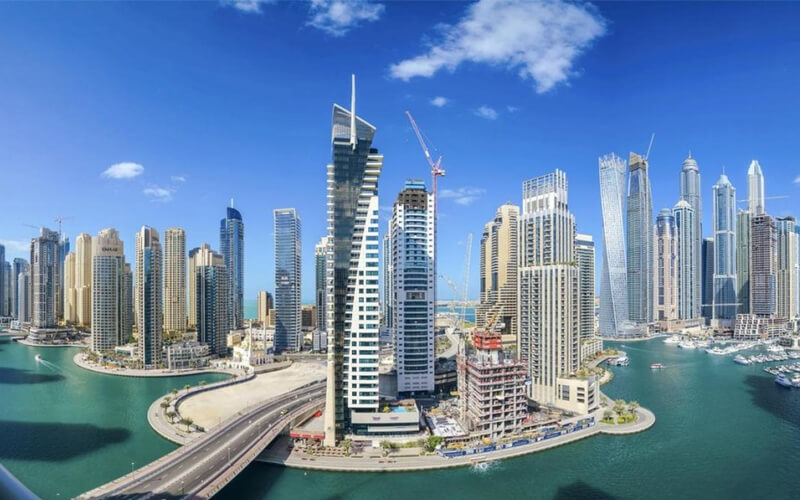
Why Dubai Avoids Property Taxes
Low taxes are a key driver of economic growth. Dubai attracts foreign investment, and real estate benefits significantly from this approach.
The absence of property taxes reduces Dubai Property Ownership Costs, allowing investors to retain more profits and increasing the overall appeal of the market.
Legal Structure of Property Ownership
The Dubai Land Department (DLD) oversees all property transactions. Freehold ownership is available in designated areas, while leasehold applies elsewhere.
Foreign buyers can purchase freely in freehold zones. Title deeds guarantee ownership security, and legal clarity boosts investor confidence.
Always verify contracts carefully. Uinvest Group provides legal support and a broad network to simplify compliance, making the process stress-free.

Key Fees Replacing Property Tax in Dubai
Unlike many global real estate markets, Dubai does not apply traditional property taxes. Instead, investors encounter a set of Dubai Property Fees that cover administration, community maintenance, and utility services.
These charges are transparent and relatively low compared to international standards, making Dubai an attractive hub for foreign buyers seeking Dubai Tax-Free Property.
Understanding these fees is essential because they replace the typical annual tax burden found in other countries. With the absence of recurring Dubai Property Tax Rates, buyers enjoy predictable ownership costs and clearer financial planning.
Property Transfer Fee
When purchasing a property, buyers must pay a 4% transfer fee to the Dubai Land Department (DLD). This fee is calculated on the total purchase price and represents a one-time payment.
For example, if you purchase an apartment valued at AED 1 million, the transfer fee amounts to AED 40,000. While sometimes sellers agree to share this cost, it is usually borne by the buyer. Negotiating this during your transaction can help reduce your Dubai Property Ownership Costs.
Uinvest Group, a trusted real estate agency, assists clients by clarifying the structure of these fees and offering tailored advice. This ensures buyers are fully aware of the complete buying property in Dubai fees before finalizing their deals.
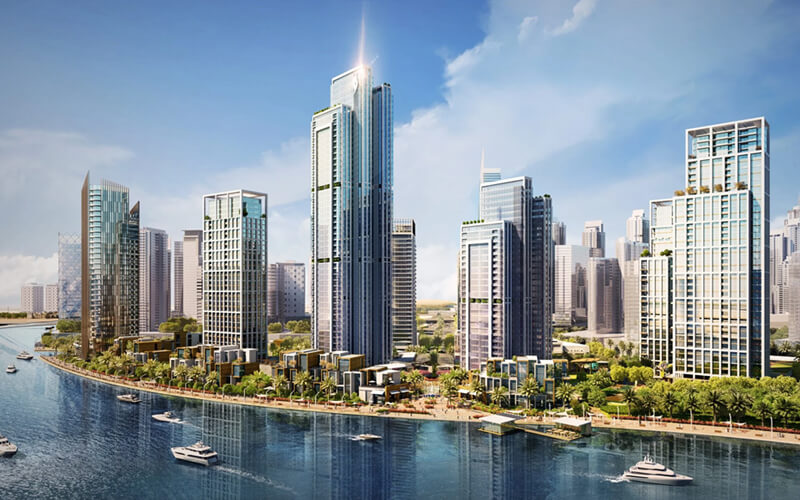
Housing Fee
Dubai applies a 5% housing fee based on the annual rental value of the property. This fee is collected monthly through DEWA (Dubai Electricity and Water Authority) bills, contributing to the municipality’s budget.
For instance, a property with a rental value of AED 100,000 would incur an annual housing fee of AED 5,000. Although sometimes mistaken for a tax, this is simply a service-related charge, ensuring essential municipal services are funded.
By monitoring DEWA statements regularly, owners and tenants can plan their monthly budgets effectively and avoid surprises. This recurring fee is a small price to pay compared to the Property Investment Benefits Dubai that investors enjoy thanks to the city’s tax-free system.
Service Charges
Annual service charges are another important cost to consider. These fees cover building maintenance, security, and shared facilities such as gyms, swimming pools, and landscaped gardens. Rates usually range between AED 10–25 per square foot, depending on the property type and community.
For a 1,000 sq ft apartment, owners can expect to pay around AED 15,000 annually. Premium buildings and luxury developments may charge more, while smaller communities remain affordable.
Although this is a recurring cost, it is not a tax. It ensures that Dubai’s residential communities remain modern, secure, and well-maintained, enhancing both lifestyle and long-term property value.
These charges highlight why many investors choose Dubai Tax-Free Property—their money goes toward tangible community benefits rather than government taxes.

Benefits of Dubai’s Tax-Free Property System
Dubai’s no property tax policy is a true game-changer in global real estate. It lowers Dubai Property Ownership Costs and allows investors to keep more of their earnings. Both homeowners and international buyers benefit directly from this investor-friendly environment.
Higher Rental Yields
With No Property Tax in Dubai, landlords enjoy stronger rental returns. Gross rental yields generally range between 5–8%, and after deducting Dubai Property Fees, investors still achieve 4–6% net.
To put this in perspective, prime areas in London average just 3–4%. Dubai clearly outperforms, especially in high-demand neighborhoods like Downtown Dubai and Dubai Marina.
Lower Transaction Costs
The Dubai Land Department’s 4% transfer fee is highly competitive compared to international markets. In London, for instance, stamp duty can reach up to 12%, significantly increasing costs.
Dubai also stands out because there is no capital gains tax. Investors retain full profits when selling, fueling reinvestment and long-term portfolio growth. This advantage highlights why Dubai Tax-Free Property is seen as a safe and profitable option.
Economic Stability
Dubai’s tax-free structure supports long-term economic growth. Without property taxes, foreign direct investment flows steadily into the emirate, keeping the real estate sector resilient.
Stable policies, combined with clear Dubai Property Tax Rates (or rather the absence of them), attract both expats and global corporations. Confidence in the market grows, encouraging long-term residential and commercial investments.
Attractive for Global Investors
The promise of Golden Visa Dubai Property makes Dubai even more appealing. Buyers who meet certain investment thresholds may secure long-term residency, a benefit not available in many competing markets.
The city’s tax-free status draws interest from European, Asian, and Middle Eastern investors. Dubai’s lifestyle—luxury, safety, and cultural diversity—further strengthens its appeal as a global property hotspot.
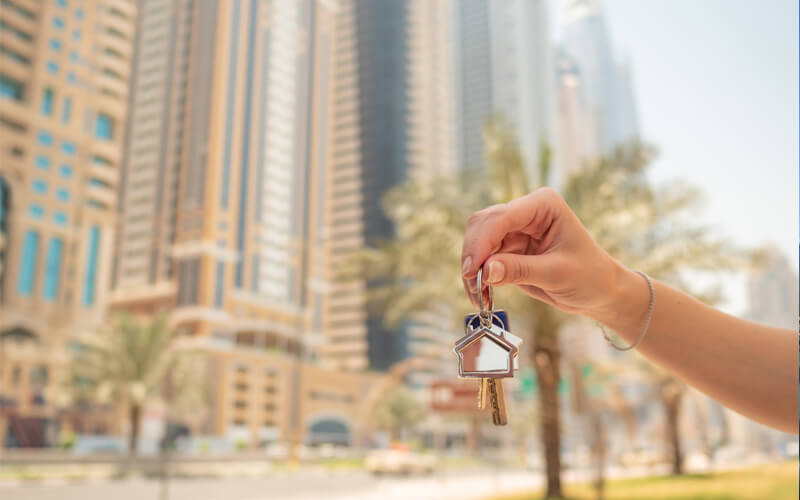
Debunking Myths About Property Tax in Dubai
Many buyers hesitate due to misconceptions about Dubai’s tax system. Let’s clarify the myths and highlight the truth. Accurate knowledge helps investors make confident decisions.
Myth 1: Property Tax in Dubai Is High
There is no annual property tax for residential homes. Instead, investors only pay Dubai Property Fees, which are among the lowest globally.
Compare this with New York, where annual property taxes reach 1–2% of property value. Dubai’s model is lighter, allowing buyers to save significantly.
Myth 2: Commercial Property Taxes Are Costly
Commercial properties are subject to 5% VAT on sales and 9% corporate tax, but both are minimal by international standards.
For example, Singapore’s stamp duty is up to 3%, and corporate property taxes can be much higher. Dubai remains competitive and attractive for business investors.
Myth 3: Hidden Charges Are Excessive
While service charges and maintenance costs exist, they are transparent and predictable. Buyers know exactly what they’re paying for.
Other global cities often impose far higher hidden costs. With expert help, investors can learn How to Avoid Property Tax in Dubai misconceptions entirely.
Myth 4: No Tax Means No Regulation
Some assume Dubai lacks strong oversight. In reality, the Dubai Land Department (DLD) enforces strict rules, and title deeds guarantee ownership security.
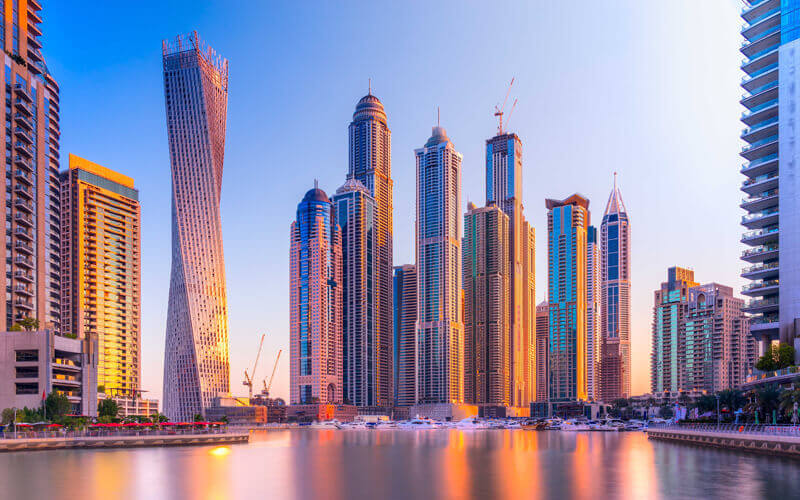
Comparing Dubai to Global Markets
Dubai’s No Property Tax in Dubai system stands out worldwide. A quick comparison reveals why it outperforms major property hubs.
Dubai vs. London
London applies a council tax of 1–2% annually. Stamp duty adds up to 12% on purchases, significantly increasing costs.
Dubai’s 4% DLD fee is far lower, and no capital gains tax applies. Profits stay intact, fueling reinvestment.
Dubai vs. New York
New York applies 1–2% annual property tax, plus 1–2% transfer taxes. Over time, these eat into returns.
Dubai imposes no recurring tax and even provides residency benefits through property investment. New York offers no such advantage.
Dubai vs. Singapore
Singapore levies 4–16% annual property tax and 1–3% stamp duty. These charges heavily impact ownership costs.
By contrast, Dubai offers Dubai Tax-Free Property and simplified residency through real estate. Singapore’s residency route is more complex and restrictive.

Hidden Costs of Property Ownership
Beyond standard fees, a few additional expenses exist. These are not taxes, but buyers should plan for them in advance.
- DEWA Setup Fees: Deposits of AED 2,000–4,000 are refundable. Monthly bills average AED 500–1,000, with villas costing more.
- Maintenance and Repairs: Humidity and wear require annual repairs costing AED 2,000–10,000. Service charges cover shared areas only.
- Brokerage Fees: Agents charge 2% on sales and 5% on rentals. RERA-licensed agents guarantee reliability. Uinvest Group offers competitive rates.
Financial Planning for Dubai Property Ownership
Smart financial planning is essential for long-term success in the real estate market. With No Property Tax in Dubai, budgeting for ownership becomes much simpler compared to cities like London or New York, where annual taxes significantly reduce profits.
Budgeting for Purchase
Buyers should prepare at least 20% of the property value as a down payment. In addition, the Dubai Property Fees include the 4% Dubai Land Department (DLD) transfer fee and around 2% for brokerage services.
For a property worth AED 1 million, this translates to approximately AED 260,000 in upfront costs. Planning these expenses carefully ensures smoother transactions and prevents last-minute financial stress.
Ongoing Costs
While Dubai does not impose annual property taxes, buyers must account for recurring costs. These include service charges (typically AED 10–25 per sq. ft. annually), the 5% housing fee based on the rental value, home insurance, and DEWA utility bills.
Altogether, these average between AED 5,000–15,000 per year, depending on property type and size. Having a clear budget for these ensures there are no surprises later.
Investment Strategy
Dubai’s tax-free environment amplifies the Property Investment Benefits in Dubai by allowing investors to retain higher net profits. Rental yields average 5–8%, with hotspots such as Downtown Dubai and Dubai Marina consistently performing strongly.
For risk management, diversifying across multiple units or property types is advisable. With expert guidance, investors can balance stable income with long-term capital appreciation.
Recommended Articles:
- Comparing Property Investment in Dubai vs. Turkey: Which is Better?
- How to Find Below Market Value Property in Dubai
- How to Buy Property in Dubai on a Low Budget?
- Can Foreigners Buy Apartments in Dubai?
- How Much to Buy Apartment in Dubai in 2025?
- Best Areas to Buy an Apartment in Dubai in 2025
- Is Buying an Apartment in Dubai Still a Wise Investment in 2025?
Future Trends in Dubai’s Real Estate Tax System
Dubai’s tax framework is designed to remain attractive for foreign investment. Currently, there is No Property Tax in Dubai, and experts believe this policy will continue. However, keeping track of potential changes is vital for investors who want to stay ahead.
Policy Stability
In 2023, the UAE introduced a 9% corporate tax, but importantly, Dubai Property Tax Rates for residential or commercial ownership remain absent. Authorities have repeatedly signaled their commitment to maintaining this investor-friendly stance, making Dubai a reliable long-term choice.
For those wondering how to avoid property tax in Dubai, the answer is simple: the system is already tax-free, and only standard transaction fees apply.
Sustainable Developments
Green and eco-friendly projects are rising in demand. The government supports these with zero taxation on eco-upgrades such as solar panels or energy-efficient systems. Properties with LEED certification not only reduce operational costs but also gain higher resale value, adding another layer of the Dubai Tax-Free Property advantage.
Tech Integration
Dubai is also integrating technology into its property sector. Blockchain is making transactions more secure and transparent, while virtual tours help buyers make faster decisions. None of these advancements introduce hidden taxes, ensuring investors continue to enjoy the clarity and benefits of the Dubai Property Ownership Costs framework.
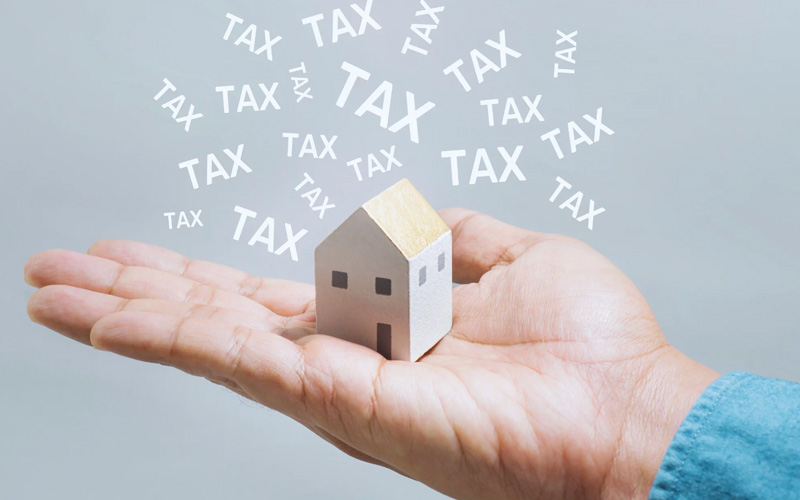
Practical Tips for New Buyers
First-time investors need clear guidance to avoid mistakes. Dubai’s market is transparent and welcoming.
- Research: Explore freehold areas on official DLD portals.
- Visit: Inspect properties physically and evaluate amenities.
- Consult: Partner with experts. Uinvest Group provides trusted, personalized advice.
- Budget: Account for every fee to avoid surprises.
- Legal Check: Verify title deeds and seek legal support when needed.
Dubai’s Tax-Free Property Market with Uinvest Group
Dubai’s tax-free property market is a major draw for investors and homeowners. Transparent fees and low ownership costs make it highly attractive.
From transfer fees to service charges, all costs are clear, while high rental yields boost profitability. Dubai consistently outperforms other global markets, offering both security and growth potential.
We can guide you through every step, ensuring a smooth and informed investment journey. Explore your options today and make your Dubai property dreams a reality.
FAQs:
1. Is there property tax in Dubai?
No, Dubai does not impose annual property tax on residential properties. Instead, owners only pay standard fees such as transfer fees, service charges, and a housing fee.
2. What fees replace property tax in Dubai?
Instead of property tax, Dubai applies fees like the 4% Dubai Land Department (DLD) transfer fee, a 5% housing fee based on rental value, and annual service charges for maintenance and shared facilities.
3. Do foreign investors pay property tax in Dubai?
No, foreign investors do not pay property tax in Dubai. They can purchase property in designated freehold areas and only need to cover the standard transaction and service fees.
4. How much is the Dubai Land Department transfer fee?
The transfer fee is 4% of the property’s purchase price. For example, if a property costs AED 1 million, the transfer fee is AED 40,000.
5. What is the housing fee in Dubai?
The housing fee equals 5% of a property’s annual rental value and is collected through monthly DEWA (Dubai Electricity and Water Authority) bills.
6. Are service charges the same as property tax?
No, service charges are not taxes. They cover the cost of maintaining buildings, security, landscaping, and shared amenities. The rate is usually between AED 10–25 per sq. ft. annually.
7. Is there a capital gains tax on property sales in Dubai?
No, Dubai does not impose capital gains tax. This means investors keep all profits when selling their properties.
8. Do commercial properties in Dubai have taxes?
Commercial properties are subject to 5% VAT on sales and a 9% corporate tax for businesses, but there is still no annual property tax.
9. Why is Dubai attractive for property investors?
Dubai’s tax-free property system, high rental yields (5–8%), low transaction costs, and the potential for Golden Visa residency make it a top global investment destination.
10. Are there hidden property ownership costs in Dubai?
No hidden taxes exist. However, buyers should plan for brokerage fees, DEWA deposits, maintenance, and insurance. All charges are transparent and predictable.
